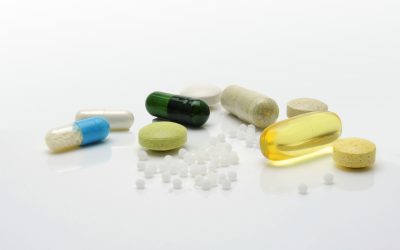Does Caffeine Affect Fertility?
One of the most common questions asked around preconception health is the impact of caffeine consumption on fertility. Many people can work towards optimizing their diet and lifestyle to improve their chances of getting pregnant, but they draw the line at removing their hot cup of comfort in the morning.
Based on the research, consuming modest amounts of caffeine doesn’t tend to be detrimental for fertility, whereas high amounts may be. However, recommendations for caffeine consumption are not a one-size-fits-all approach. Individual factors must be taken into consideration such as hormonal imbalances and caffeine metabolism. Depending on your unique case, the amount of caffeine in your diet may require revising in order to optimize your chances of conceiving.
So what does the research say about caffeine and fertility?
There is no definitive answer when it comes to caffeine consumption because it affects every individual differently. However, we can draw conclusions based on the majority of the research.
Length of time to conceive
Often times, it takes couples longer than expected to get pregnant. One study reported no significant difference in time to conceive between women who consume <100mg caffeine or >100mg caffeine per day1. On the other hand, studies have found that women who consume >2 cups of caffeine per day take longer to get pregnant 2, 3. Because the effects of caffeine on time to pregnancy are not clear, it is best to consume fewer cups of coffee per day during the preconception period.
IVF
Caffeine consumption matters for both partners undergoing an IVF procedure. A 2017 study showed similar birth rates between women undergoing IVF who consumed low vs high levels of caffeine per week. But, the same study showed that there was a lower number of live births if the male partner OR both partners consumed caffeine regularly, at an average of 100mg/day for women and 200mg/day for men4. In other words, consuming around 1-2 cups of coffee per day during an IVF cycle decreases the likelihood of success. This seems to be especially important for the male partner. Keep in mind the combined consumption of caffeine between both partners going through an IVF procedure and minimize coffee intake to one or less cups per day to optimize IVF success rates.
Male Semen Parameters
In terms of male semen parameters, consuming 4 or more cups of coffee per day may result in a higher percentage of abnormal sperm morphology. In other words, high caffeine intake may be related to lower sperm quality which affects the chances of getting pregnant. Also, males partners who drink high amounts of coffee may take longer to conceive compared to those who drink <3 cups per day 5, 6. Again, we see a dose dependent relationship here where detrimental effects are seen in people who consume a large amount of caffeine per day. We often recommend decreasing consumption to one or less cups of coffee per day, depending on individual factors.
An individualized approach to caffeine and fertility
Although some research suggests that moderate caffeine consumption is not detrimental to fertility, at Awaken Life we are all about individualized care. This means that while one person may be okay to consume one cup of coffee per day, another individual may need to completely avoid it.
Estrogen Dominance
For example, in cases of estrogen dominance women often cannot handle caffeine as well and notice better results by eliminating it completely. This is because the enzymes that are involved in caffeine metabolism also play a role in estrogen metabolism, and therefore caffeine affects the elimination of estrogen from the body7. Conditions where estrogen dominance is often present include endometriosis, PCOS, fibroids, polyps and fibrocystic breasts. The term ‘estrogen dominance’ is used when there is a relative imbalance between estrogen and progesterone. This can occur when estrogen is elevated or when progesterone is low. When progesterone is low, estrogen is high relative to progesterone but may not actually be high on its own. To learn more about estrogen dominance, visit our blog post here.
Miscarriage
Research has also shown that caffeine consumption may increase the risk of miscarriage. A 2017 study concluded that 300mg of caffeine per day significantly increased the risk of spontaneous abortion8. Another study found that caffeine consumption was correlated with low birth weight, and growth restriction was reduced with caffeine intake <100mg/day9. In other words, higher caffeine intake is associated with lower birth weight. Although the research is inconclusive, we often recommend keeping caffeine consumption to one cup or less per day in order to optimize fertility and live birth rates.
What about other sources of caffeine?
We often think of coffee when talking about caffeine, but it is important to be mindful of other sources such as tea, soda, energy drinks and chocolate. In terms of fertility, the additive effect of caffeine matters.
Soda
Men
One study reported a lower semen volume in men who consumed a higher weekly cola intake, with a dose dependent effect. Consuming 1-2 bottles of cola per week resulted in a 4.1% decrease in semen volume while more than 3 bottles per week resulted in a further reduction to 12.5% 10. Therefore, each additional bottle of cola per week seems to decrease semen amounts further. As a result, it is important to minimize cola consumption as much as possible to support healthy amounts of sperm.
Women
It has also been shown that women who consume soda regularly have lower monthly fertility rates. There is almost a 50% increased risk of ovulatory infertility in women who consume 2 or more sodas per day1,11. This means that soda is directly affecting ovulation rates in women. Consequently, minimizing soda intake can only be beneficial when it comes to both male and female fertility, and overall pregnancy success.
Tea
Tea is a bit of a different story. There actually tends to be a positive effect on fertility with the consumption of ½ – 2 or more cups per day1,12. This may be due to its antioxidant benefits, but tea still contains caffeine and intake should be monitored.
So how much caffeine is too much?
In terms of preconception health, we are often aiming for no more than 100-200mg of caffeine per day. But again, every individual is different and there are many other factors that need to be considered. This is typically equivalent to one average-sized mug of coffee or 2 caffeinated teas. Be mindful of your total caffeine consumption, as coffee + tea + soda + chocolate will all have additive effects. Also keep in mind the combined caffeine intake between both partners. Below is a guideline to help determine your caffeine consumption throughout the day.
- Coffee – One mug (250ml): 100-200mg
- Decaf coffee (250ml): 2-12mg
- Espresso (1-2oz): 45-75mg
- Black tea (250ml) : 50-70 mg
- Black tea, decaf: 0-12mg
- Cola (500ml) : 50mg
- Diet cola: 66mg
- Energy drinks: 160-300mg
- Milk chocolate (1.5oz): 9mg
- Dark chocolate (1.5oz): 30mg
What can I do to minimize caffeine consumption?
- Use a Smaller Mug– you may be used to drinking more than 1 cup of coffee per day. For example, anything larger than a Tim Hortons small or Starbucks short is over 250mL. Consider downsizing your regular order – this can also reduce your daily intake of sugar if you like your beverages sweet! Tip: bring your own mug to minimize exposure to BPA and plastic that is often found in take-out beverage holders. Read about the effects of BPA and xenoestrogens here.
- Ask for Half Decaf– If you’re used to consuming more than one cup of coffee per day, or you enjoy your daily medium or large coffee, consider replacing half of it with decaf coffee. It will taste very similar, but with a lot less caffeine!
- Stay Educated– many popular cafes include the caffeine content of their beverages online. If you consume anything other than regular coffee, consider researching the amount of caffeine in your favorite beverage and down-size or switch if needed.
- Swap the Soda– Cola has just as much caffeine as black tea and tends to be the most detrimental in terms of sperm parameters and ovulation rates. Try switching it out with carbonated water – you can add fresh lemon, lime, cucumber or berries to add natural flavor!
- Hot Alternatives– consider switching to non-caffeinated alternatives to sip on throughout the day. Warm lemon water is a great way to wake up your digestive system in the morning. Herbal teas are also a great option – but be sure to talk to your healthcare provider as some may be detrimental to fertility.
A final word on caffeine and fertility
When it comes to caffeine and fertility, the pattern seems to be that less is more. Some research shows that consuming a modest amount per day may not significantly impact fertility outcomes, however in higher amounts we start to see possible detrimental effects. Caffeine has also been shown to increase miscarriage rates, impair semen volume and ovulation and can contribute to estrogen dominance.
At Awaken Life, I believe in individualized care that is specific to your unique needs. If you are trying to conceive and need more clarity around caffeine consumption, I would be happy to support you in optimizing your chances!
With love and in health,
Priya
References
- Hatch, Elizabeth E., et al. “Caffeinated Beverage and Soda Consumption and Time to Pregnancy.” Epidemiology, vol. 23, no. 3, 2012, pp. 393–401., doi:10.1097/ede.0b013e31824cbaac.
- Jensen, Tina Kold, et al. “Caffeine Intake and Fecundability: A Follow-up Study among 430 Danish Couples Planning Their First Pregnancy.” Reproductive Toxicology, vol. 12, no. 3, 1998, pp. 289–295., doi:10.1016/s0890-6238(98)00002-1.
- Wilcox A, Weinberg CR, Baird DD. Caffeinated beverages and decreased fertility. Lancet. 1988;ii:1453–5.
- Choi, Jamie H., et al. “Effects of Caffeine Consumption by Women and Men on the Outcome of In Vitro Fertilization.” Journal of Caffeine Research, vol. 1, no. 1, 2011, pp. 29–34., doi:10.1089/jcr.2011.0001.
- Marshburn, Paul B., et al. “Semen Quality and Association with Coffee Drinking, Cigarette Smoking, and Ethanol Consumption*.” Fertility and Sterility, vol. 52, no. 1, 1989, pp. 162–165., doi:10.1016/s0015-0282(16)60809-9.
- Florack, E.i.m., et al. “Cigarette Smoking, Alcohol Consumption, and Caffeine Intake and Fecundability.” Preventive Medicine, vol. 23, no. 2, 1994, pp. 175–180., doi:10.1006/pmed.1994.1024.
- Sisti, J. S., et al. “Caffeine, Coffee, and Tea Intake and Urinary Estrogens and Estrogen Metabolites in Premenopausal Women.” Cancer Epidemiology Biomarkers & Prevention, vol. 24, no. 8, 2015, pp. 1174–1183., doi:10.1158/1055-9965.epi-15-0246.
- Lyngsø, Julie et al. “Association between coffee or caffeine consumption and fecundity and fertility: a systematic review and dose-response meta-analysis” Clinical epidemiology vol. 9 699-719. 15 Dec. 2017, doi:10.2147/CLEP.S146496
- CARE Study Group. “Maternal caffeine intake during pregnancy and risk of fetal growth restriction: a large prospective observational study” BMJ (Clinical research ed.) vol. 337 a2332. 3 Nov. 2008, doi:10.1136/bmj.a2332
- Yang, Huan et al. “Lifestyles Associated With Human Semen Quality: Results From MARHCS Cohort Study in Chongqing, China” Medicine vol. 94,28 (2015): e1166.
- Chavarro, Jorge E., et al. “Caffeinated and Alcoholic Beverage Intake in Relation to Ovulatory Disorder Infertility.” Epidemiology, vol. 20, no. 3, 2009, pp. 374–381., doi:10.1097/ede.0b013e31819d68cc.
- Caan, B, et al. “Differences in Fertility Associated with Caffeinated Beverage Consumption.” American Journal of Public Health, vol. 88, no. 2, 1998, pp. 270–274., doi:10.2105/ajph.88.2.270.
- Ricci, Elena, et al. “Coffee and Caffeine Intake and Male Infertility: a Systematic Review.” Nutrition Journal, vol. 16, no. 1, 2017, doi:10.1186/s12937-017-0257-2.
I want to help you get there. The key to your fertility lies within you.
Let's Awaken it!
More Reading
Naturopathic Medicine in Fertility
Whether you are just starting to try to get pregnant, struggling with getting pregnant or suffering from recurrent miscarriages, a fertility naturopathic doctor can help you along your fertility journey. Naturopathic doctors are trained healthcare professionals with...
The Role of Melatonin in Fertility
Most of us have heard about melatonin in the context of sleep, as a supplement that can impact our circadian rhythm. However, this hormone also plays an important role in female fertility. What is Melatonin? Melatonin is a hormone made by the pineal gland in...
Simple Tips to Improve Your Chances of Conceiving
It’s easy to get caught up in the minor details of what we could be doing better when trying to get pregnant. This can lead to constant thoughts around the effects that our daily activities have on our chances. This self-criticism can feel overwhelming and...




Share This
Share this post with your friends!